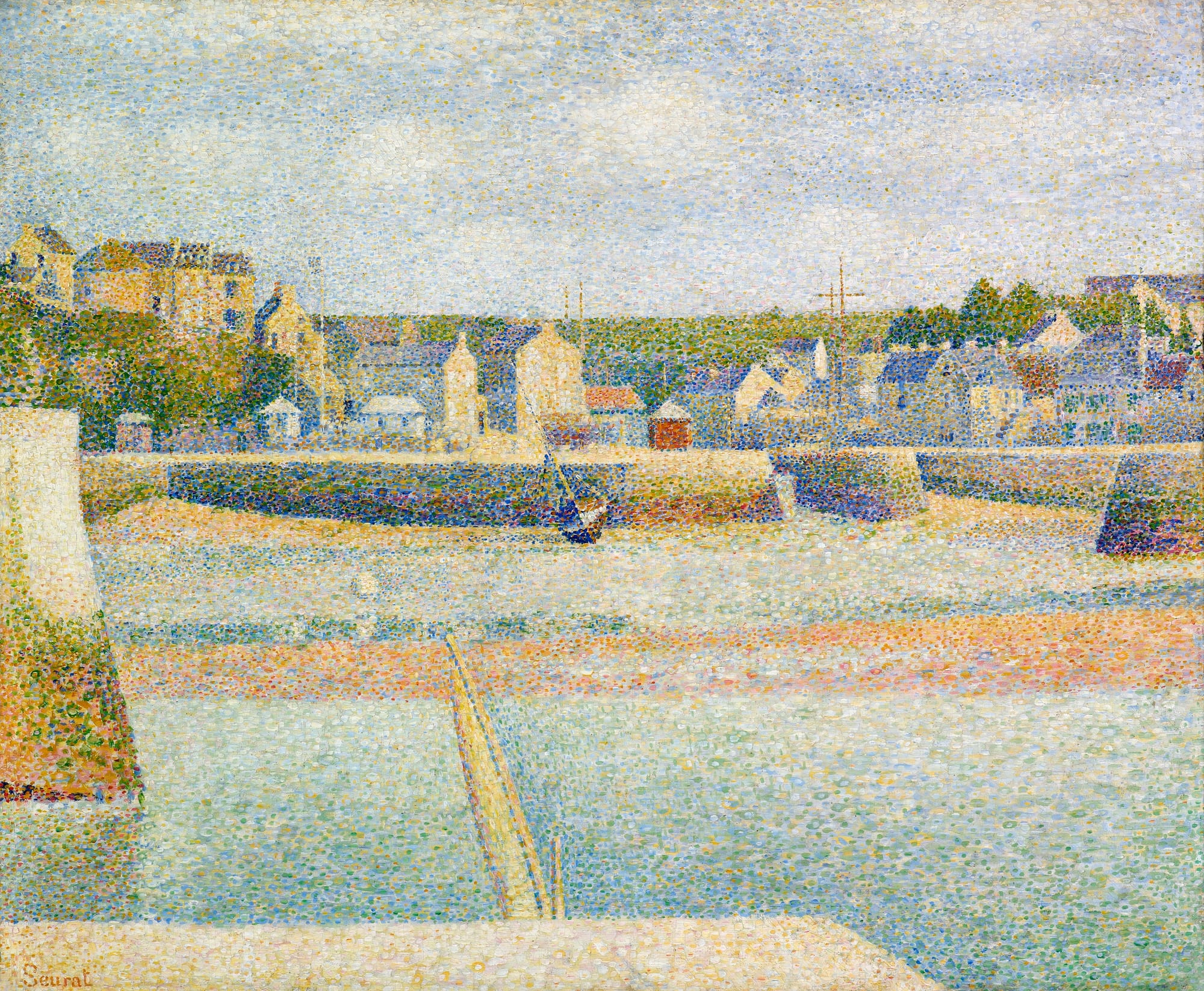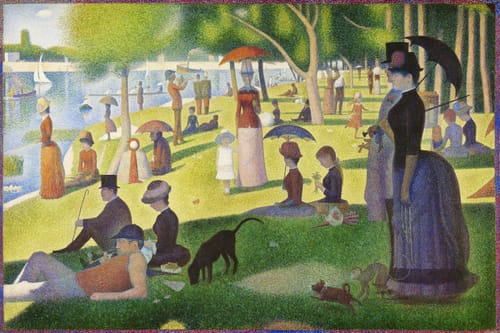Scroll down to watch the Full Video!
Spiritual Sociology, to summarize it first, is the idea that others create something, too. There is not only me in this world, but also others.
So, a lot of time when we look, for example, into spiritual concepts and ideas, it is about: Oh, you can do it all. – And if you want something, maybe you have to overcome obstacles, but you have to be clear what you want, and then you can get it. This is the basic assumption from a lot of spiritual ideas.
Sociology is the idea of: Oh, there is a society and that society and those people they also create. And also, in society this is a special focus of sociology there are power structures. So, let me give you an example.
Not everybody has the same possibilities to achieve a higher position or go to a university because a person who grew up in a non-academic environment, for example, lacks not only money but also skills that are needed to go to university or become a leader in an institution. Sociology's aim is to unveil those hidden power structures so everybody gets the same rights.
Actually the spiritual people say that everybody can create a beautiful life, that they can fulfill their heart wishes, and so on. So there are two different perceptions on what you can actually achieve.

A lot of time in the spiritual philosophies, because it's not philosophy but ideas they say: “Oh, if something is not working out, it's because of you.” “It's because of your childhood, of your past life, of your ancestors, whatever, but it's always falling back to you. And this is actually the interesting thing because spiritual people often say they are kind of the new paradigm, the new age, but this thinking is actually the old paradigm. The old age telling you: "Oh everybody can make it, everybody can get from a dishwasher to a millionaire, that's the American dream."
And sociology says yeah that's a great dream and maybe this is what we want for everybody to achieve in society, so everybody can be who they are supposed to be, but in the structures we're living it's not possible for everybody, because there are hidden power structures. Those structures make it impossible for everybody to achieve their dreams.
Why it is important to know that?
I am not saying spiritual ideas are completely wrong, it's often they are part of the truth and maybe sometimes this is what you need to do, heal this wounding or whatever, but the problem is that it becomes extreme and like the only truth and not looking at other possibilities and other causes that maybe hinder you or block your success or your journey.
I want to give you an example: So just take the basic idea of if you feel worthy enough and have healed whatever, you will have a lot of money. That might be the truth for some people, but there are also a lot of people in the world. I mean, they have a lot of money and I'm sure they don't have a lot of self-esteem. This is why empirical studies came into this world, like say why they are important also to a degree. Oh, just check reality. There are people, they have money, but you can see they are just acting out their fears. There are many people who are more emotionally mature, and kind and sweet and helping others and really wonderful beings and humans who have no money. So, it is not that simple.

Or if you look at the “health topic”. Spiritual People often say: “Oh, if you're getting sick, it's because of your soul wants to tell you something. Or: You didn't care enough for yourself and now you're soul is sending you a sign. That's possible. But another possibility is. This is, I love Erich Fromm. He was a psychologist. He said in the 1980s, Actually, the ill ones are the healthy ones because this society is so insane and the people who get actually ill, that shows they are humans. I don't think this technical world and industrial society, is not healthy. So it's the opposite. So what is the truth? Also, we know that, for example, narcissists, often don't get sick, but everybody around them, which actually confirms what Erich Fromm said. Why the people in power are not ill actually, although we sometimes know, they do things they are very evil?
So, I just want to say with Spiritual Sociology that it's more complex. It's possible that your soul wants to tell you something by getting ill. But it's also possible you just don't give yourself the right nutrition. But also, we don't live in healthy structures, and they can make you sick. And sometimes, because of the power structures or your need for money to live, you cannot just live the life you want and maybe you know that's better for you, but you can’t afford it. And we are blaming people then: “Oh, it's your fault.” That's where Sociology comes in and says: “Hey, stop, no, it's not all your fault!”
The sociologist, for example, sometimes overdo it because they get like: “Oh, it's all the power structures and you can't do anything.” So they get it in another extreme. And this is why I created Spiritual Sociology to bring those extremes actually together. This spiritual assumption saying like every human is a god and can create everything. It's just too extreme. It's ignoring that we're embedded in much larger structures. I give you another example. It's different if you grew up in the US, in Germany, or in Turkey, or in Africa, you have other possibilities. I just give you one example. I want to travel. It's easy for me because I have a German passport, but I have a lot of Turkish friends. When they want to travel somewhere, their country is not allowed to go to all these different countries. So they have to get a huge, much bigger effort to do the same.
So basically sociology is about embedding this all in a context. The first thing I want to say is also: “It's not about now making excuses for not doing the work not doing your inner work not doing your healing work not doing whatever work you should do. It's about to understand and give yourself self-compassion in case you're not where you feel you should actually be. There is the possibility, it's because of power structures and other things. I don't think God, Goddess, the universe, however you wanna call it, wants single moms be in such a bad situation, you know? It's us, it's the society that doesn't look properly and give better chances for women who have to raise their child on their own. In Germany, for example, who is supposed to be so good for women and where feminism is everywhere, single moms still belong to the poorest class. So, why hasn’t feminism managed that yet?
How can we use that knowledge?
Watch the full video for the whole answers.
About
Dr. Gabriele Maria Sigg is the Editor in Chief of the Beautyfull Life Magazine. She studied philosophy and sociology, investigating honor as the basis of a healthy society as her Ph.D. work. She is an expert in Greek philosophy and “Deutsche Geisteswissenschaft” (German Poets and Thinkers). Dr. Sigg translates the original Western spiritual and personal character development ideas for a fulfilled life into modern language. Through personal experience and her professional expertise in philosophy and sociology, she envisioned the importance of Emotional Education not to repeat the unproductive cycles of male-female / matriarchy-patriarchy / mind-emotional-polarization. Instead, her mission is to create a balanced society that embodies love, freedom, and honor (justice). www.gabrielesigg.com
Artist
Georges-Pierre Seurat (1859–1891) was a French artist and painter. Seurat's paintings were known for vibrancy of color and the use of tiny brushstrokes of contrasting colors. His intense interest in line, color, color theory, and optical effects formed the basis of Divisionism, whereas the use of layering small brushstrokes and dots formed the basis of Pointillism. His iconic late 19th-century painting, A Sunday Afternoon on the Island of La Grande Jatte (1884), paved the way for the initiation of Neo-impressionism.
